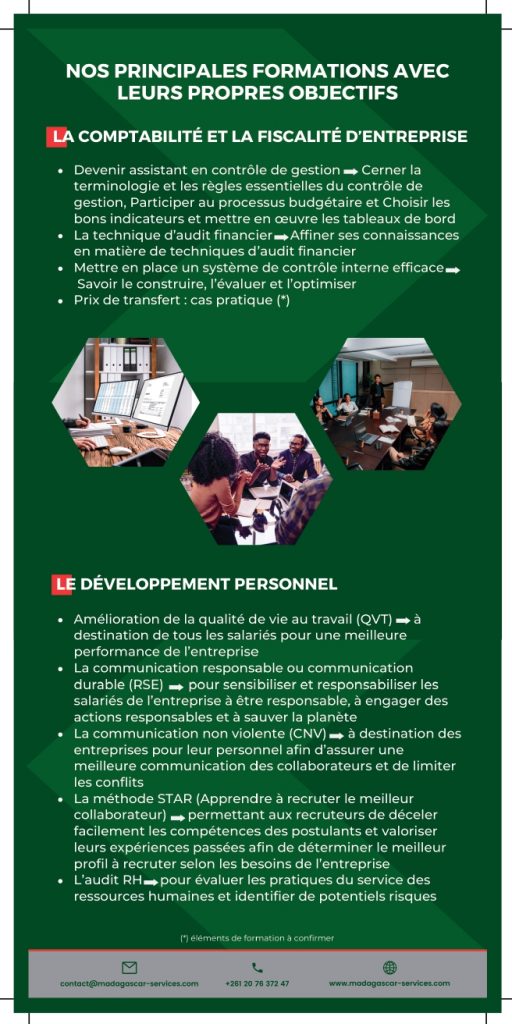When recruiting, many employers opt for a candidate who has completed training in the field relating to the position to be entrusted, apart from the associated diplomas. If so, why still train employees?

Staff training aims to provide an employee with knowledge to improve business skills and enhance the image of the company. The costs relating to staff training are borne by the FMFP in support of the quarterly contributions paid by the employer up to the threshold in force.
Staff training increases competitiveness and business success
- Entrepreneurial culture relates to the knowledge relating to the entrepreneurial environment to be acquired in order to succeed in a project and easily establish itself in the market.
- Training on entrepreneurship and entrepreneurial culture includes, among others:
- The essential qualities of a good salesperson for knowledge of the market, proactivity by being proactive, analytical skills and mastery of the offer
- The Hard Skills (hard skills) and Soft skills (soft skills) for a good mastery of tools and technical gestures
- Reskilling, which consists of providing employees with new skills in order to develop their careers, and Upskilling to train employees of a company on subjects already mastered in order to broaden their skills
Staff training motivates and retains their talents
- Personal Development trainings:
- Professional personal development in the Company for the development of new skills
- Improvement of the quality of life at work (QVT) to have motivated and productive permanent employees in order to limit turnover and the high rate of absenteeism
- Responsible communication or sustainable communication (CSR) which consists of considering societal and environmental aspects for the Company’s brand image and for its performance
- Nonviolent communication (NVC) to resolve conflicts and develop personal, family and professional relationships
- The STAR method (Learning to recruit the best employee) to structure the hiring process and to assess the skills of the future employee
- The HR audit which consists in evaluating and analyzing the human resources skills of a company in order to draw conclusions.

Staff training is a management support tool
- Training in accounting and corporate taxation in Madagascar concerns:
- The internal management control aiming to identify the terminology and the essential rules of management control, to participate in the budgetary process and to choose the right indicators in order to implement the dashboards
- The financial audit technique which consists of refining the knowledge of financial audit techniques
- Implementation of an effective internal control system in order to know how to build, evaluate and optimize the internal control process
Transfer pricing which remains pending the implementation of Malagasy tax provisions.
With our Training offers in the field of taxation and the environment at work, training which will be provided by our expert partners in the field, workers and job seekers will benefit from the necessary supervision for their professional development.
Contact us for more information or to register for our next training courses. We can also assist you in submitting your request to the FMFP.
